Native Plants Reach a Local Landmark with UNO Certification
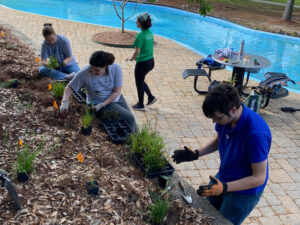 At 9:00 a.m. on Thursday, July 6, at the University of New Orleans (UNO) Amphitheater garden, the Louisiana Certified Habitat Program will reach a landmark when the Native Plant Initiative of Greater New Orleans (NPIGNO) certifies the 100th New Orleans area habitat. The certified habitat program recognizes Louisiana efforts to preserve and promote the state's natural heritage via native plant gardens which benefit wildlife and natural ecosystems (https://www.lnps.org/certifiedhabitat/). Home gardeners, businesses, schools, and other institutions that landscape with plants native to Louisiana can apply for certification through the program. A native plant expert counts the number of species or estimates the percentage of native plant species on the property to assign a certification level. Levels are bronze (25 native species or 25% native plants), silver (50 native species or 50% native plants), and gold (75 native species or 75% native plants). Over 250 properties have been certified statewide.
At 9:00 a.m. on Thursday, July 6, at the University of New Orleans (UNO) Amphitheater garden, the Louisiana Certified Habitat Program will reach a landmark when the Native Plant Initiative of Greater New Orleans (NPIGNO) certifies the 100th New Orleans area habitat. The certified habitat program recognizes Louisiana efforts to preserve and promote the state's natural heritage via native plant gardens which benefit wildlife and natural ecosystems (https://www.lnps.org/certifiedhabitat/). Home gardeners, businesses, schools, and other institutions that landscape with plants native to Louisiana can apply for certification through the program. A native plant expert counts the number of species or estimates the percentage of native plant species on the property to assign a certification level. Levels are bronze (25 native species or 25% native plants), silver (50 native species or 50% native plants), and gold (75 native species or 75% native plants). Over 250 properties have been certified statewide.
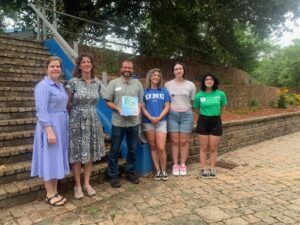 "We are so pleased to have the UNO native plant gardens as our 100th New Orleans area certified habitat," said Tammany Baumgarten, president of NPIGNO and of the Louisiana Native Plant Society. "UNO reaches such a wide range of people, from students to faculty to staff to community members, and it is truly becoming a showcase for the beauty and benefits of native plants."
"We are so pleased to have the UNO native plant gardens as our 100th New Orleans area certified habitat," said Tammany Baumgarten, president of NPIGNO and of the Louisiana Native Plant Society. "UNO reaches such a wide range of people, from students to faculty to staff to community members, and it is truly becoming a showcase for the beauty and benefits of native plants."
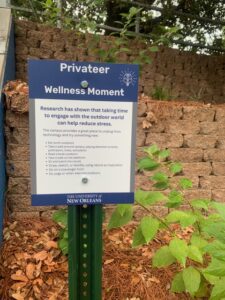 Earlier this year, Chris Belser, assistant professor of the UNO counselor education, and a team of students installed the fourth native plant garden on campus at the Amphitheater near the Earl K. Long Library, an area heavily used by students, faculty, and staff. The student team, led by Emily Miller, Arden Kleinpeter, and Genesis Santiago, researched plants, mapped the garden design, and recruited volunteers for planting and maintenance work.
Earlier this year, Chris Belser, assistant professor of the UNO counselor education, and a team of students installed the fourth native plant garden on campus at the Amphitheater near the Earl K. Long Library, an area heavily used by students, faculty, and staff. The student team, led by Emily Miller, Arden Kleinpeter, and Genesis Santiago, researched plants, mapped the garden design, and recruited volunteers for planting and maintenance work.
"Gardens like the one at the Amphitheater benefit 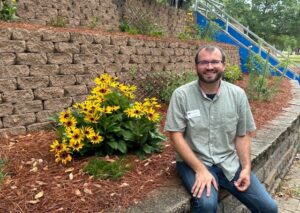 native birds, insects, and other wildlife, and they benefit humans too," said Belser who is also a Master Gardener in New Oreans with the LSU AgCenter. "Many studies have demonstrated that time outside in nature makes us healthier mentally and physically. We're adding signage to provide tips to encourage 'unplugged' outdoor lunches, breathing exercises, and other easy ways to enjoy and enhance time spent in the UNO native plant gardens."
native birds, insects, and other wildlife, and they benefit humans too," said Belser who is also a Master Gardener in New Oreans with the LSU AgCenter. "Many studies have demonstrated that time outside in nature makes us healthier mentally and physically. We're adding signage to provide tips to encourage 'unplugged' outdoor lunches, breathing exercises, and other easy ways to enjoy and enhance time spent in the UNO native plant gardens."
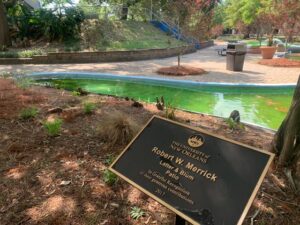 The Amphitheater garden is part of an overall sustainability project spearheaded by Belser and funded by an internal grant from UNO's Office of Research. His project is part of a larger campus greening effort and,is the third Louisiana Certified Habitat on campus. UNO’s first certified habitat was part of a Privateer Pocket Park installed at the Administration Building (http://www.uno.edu/sustainability/news#22-06-14/bird-mural) . The second certified habitat was part of a Privateer Pocket Park installed near the Fine Arts building (http://www.uno.edu/sustainability/news#22-11-22/audubon-mural). These pocket parks have native plants, environmental art painted by students, and seating to encourage the campus to enjoy nature. Privateer Pocket Parks implemented by Carol Lunn, Assistant Vice President for Research and Economic Development at the UNO Office of Research and UNO Garden Club advisor. Baumgarden, NPIGNO, and the Louisiana Native Plant Society have all contributed to helping UNO add native plants to campus.
The Amphitheater garden is part of an overall sustainability project spearheaded by Belser and funded by an internal grant from UNO's Office of Research. His project is part of a larger campus greening effort and,is the third Louisiana Certified Habitat on campus. UNO’s first certified habitat was part of a Privateer Pocket Park installed at the Administration Building (http://www.uno.edu/sustainability/news#22-06-14/bird-mural) . The second certified habitat was part of a Privateer Pocket Park installed near the Fine Arts building (http://www.uno.edu/sustainability/news#22-11-22/audubon-mural). These pocket parks have native plants, environmental art painted by students, and seating to encourage the campus to enjoy nature. Privateer Pocket Parks implemented by Carol Lunn, Assistant Vice President for Research and Economic Development at the UNO Office of Research and UNO Garden Club advisor. Baumgarden, NPIGNO, and the Louisiana Native Plant Society have all contributed to helping UNO add native plants to campus.
Another native plant project on campus is an Urban Bird Trail (https://www.uno.edu/news/2021-09-23/grant-create-urban-bird-habitat-uno-campus-and-support-environmental-education) funded by a $34,000 US Fish and Wildlife Service Urban Bird Treaty program grant through the National Fish and Wildlife Foundation. Liz Sigler, Assistant to the Vice President for Research and Economic Development Center and Director for Center for Undergraduate Research and Creativity, Grant Writer John Bishop, and campus and community partners like UNO TriO Upward Bound and the Orleans Audubon Society provided gardening muscle and know-how for the project, which has provided extensive native tree plantings campuswide as well as efforts to mitigate non-native invasive plants in the campus woodlot near the Fine Arts Building.
As part of an Earth Day Celebration, students and UNO Garden Club members also planted a native garden adjacent to student housing at Pontchartrain Hall North with plants sourced by Lunn and Baumgarten.
More information about these and other environmental sustainability projects at UNO are athttps://www.uno.edu/sustainability/news and via Instagram #KeepUNOBeautiful.
FOR MORE INFORMATION:
Chris Belser, Assistant Professor; Coordinator, Counselor Education Graduate Programs; ctbelser@uno.edu, 504-280-5864..
Carol Lunn, Assistant Vice President for Research and Economic Development; Advisor, UNO Garden Club; Keep UNO Beautiful; clunn1@uno.edu or KeepUNOBeautiful@uno.edu, 504-280-7155.
Liz Sigler, Assistant to the Vice President for Research and Economic Development; Director, Center for Undergraduate Research and Creativity; esigler@uno.edu or birding@uno.edu; Instagram: @birdsofuno; Facebook: @birdsofuniversityofneworleans, 504-280-7153.
Tammany Baumgarten - President, Native Plant Initiative of Greater New Orleans; President, Louisiana Native Society, tammany@baumgardens.com, 504-616-9344.

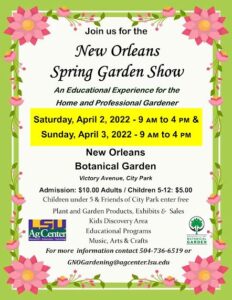
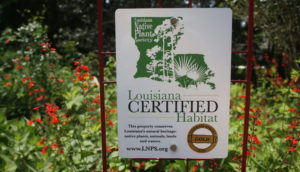

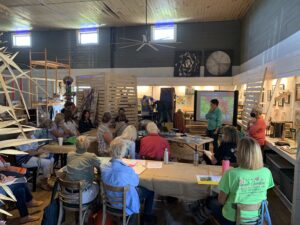
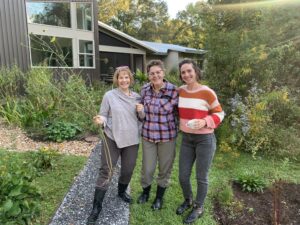
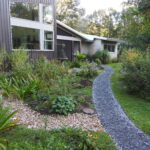
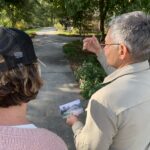

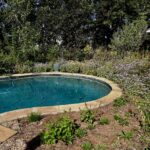
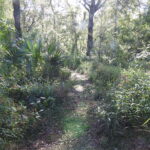
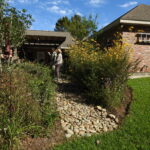
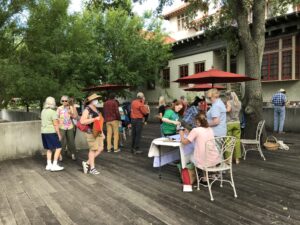 We had out first in person membership meeting since the pandemic! It was held on the shady patio at
We had out first in person membership meeting since the pandemic! It was held on the shady patio at 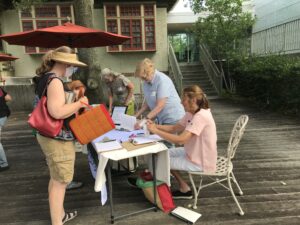 written for New Orleans. Board member, Tanya, discussed NPI's involvement in the
written for New Orleans. Board member, Tanya, discussed NPI's involvement in the 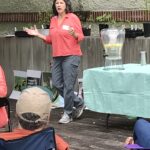
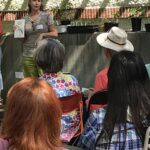
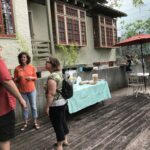
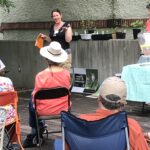
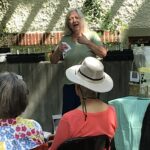
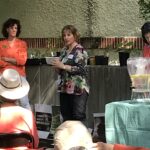
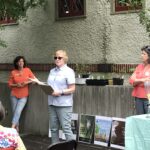
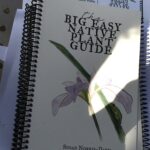
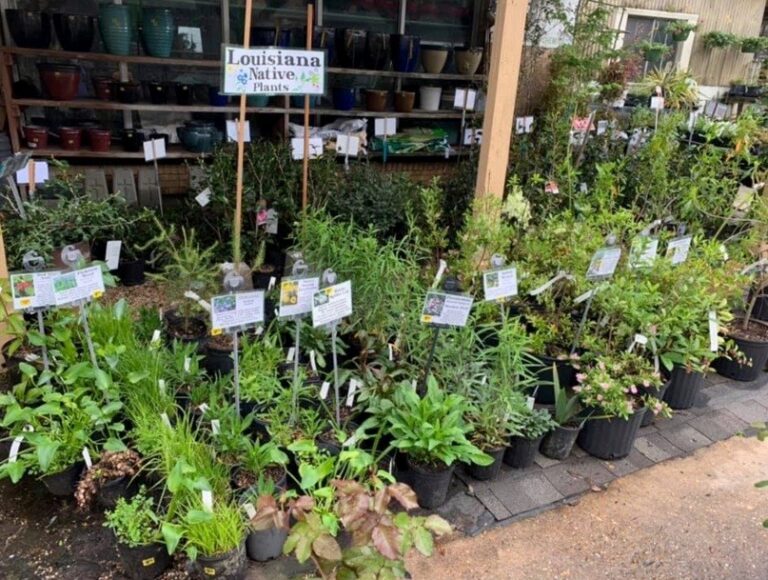
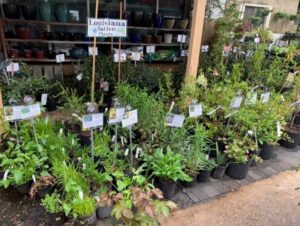
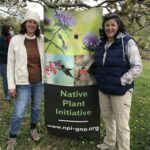
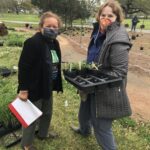
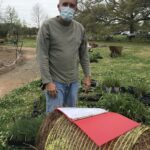
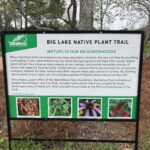
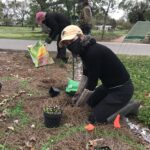
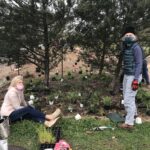
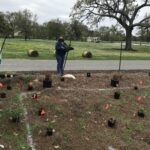
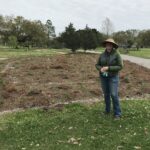
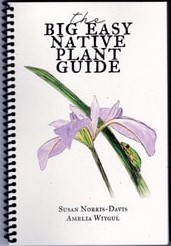 THE BIG EASY NATIVE PLANT GUIDE written specifically for the greater New Orleans area by our own Susan Norris-Davis is now available after many months of development! It includes 47 species for both sun and shade, vetted for ease of growing, suitable for small city gardens, and available locally at listed sites. It is beautifully illustrated (Amelia Wiygul) and thoroughly researched. Printed locally in the Lower 9 at Paper Machine on 100% post-consumer fiber recycled paper. It will be for sale at the
THE BIG EASY NATIVE PLANT GUIDE written specifically for the greater New Orleans area by our own Susan Norris-Davis is now available after many months of development! It includes 47 species for both sun and shade, vetted for ease of growing, suitable for small city gardens, and available locally at listed sites. It is beautifully illustrated (Amelia Wiygul) and thoroughly researched. Printed locally in the Lower 9 at Paper Machine on 100% post-consumer fiber recycled paper. It will be for sale at the